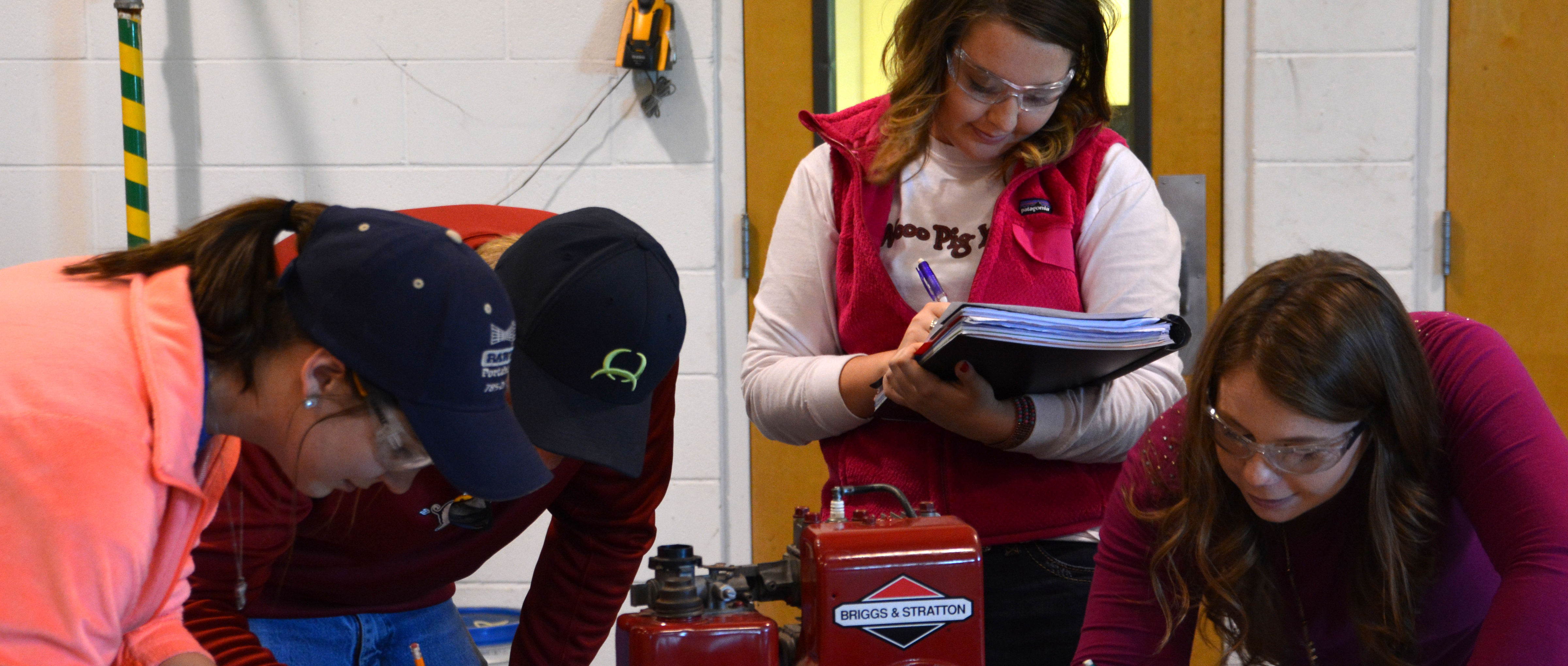— Offered by: Dale Bumpers College of Agricultural, Food and Life Sciences —
GRE
or MAT Required
- Agricultural extension is the application of scientific research and new knowledge to agricultural practices through farmer education. The field of 'extension' now encompasses a wider range of communication and learning activities organized for rural people by educators from different disciplines, including agriculture, agricultural marketing, health, and business studies.
- Cooperative Extension (CE) provides non-formal science-based education to enrich the lives and livelihood of farmers, consumers and families in Hawaii.
- Issued in furtherance of MSU Extension work, acts of May 8 and June 30, 1914, in cooperation with the U.S. Department of Agriculture. Dwyer, Director, MSU Extension, East Lansing, MI 48824. This information is for educational purposes only.
Ask an Expert is a way for you to get answers from the Oregon State University Extension Service. We have experts in family and health, community development, food and agriculture, coastal issues, forestry, programs for young people, and gardening.
2-3yrs≈ to Complete
- Thesis or non-thesis option
- Affiliate of AG*IDEA Consortium
- Students can enroll in fall, spring or summer
Estimated Cost
- $590 per credit hour for GP*IDEA Courses
| Tuition / credit hour | $430.69 |
| Fee / credit hour | |
|---|---|
| Library | $2.91 |
| Network & Data Systems | $10.78 |
| Off-Campus | $30 |
Tuition and fees per credit hour reflect fall 2020 rates for students studying completely online. If an online student takes a course on campus, tuition and fees will differ.
Tuition & Fees Information
Financial Aid
Focus on Agricultural Education
The Master of Science in Agricultural and Extension Education is designed for agricultural science teachers, extension agents, and other professionals involved in formal or informal education organizations, as well as agricultural professionals who work with applied agricultural technologies or agricultural communications.
I am very thankful for the option to complete my degree completely online. I hope to use what I’ve learned in the new program to assist other rural Arkansans by providing scholarships to assist them in their journey at the U of A in the future.'
Rebecca SternerMena, AR
Curriculum
A degree plan is developed according to faculty specializations in agricultural education, agricultural communication or agricultural system technology management. There are 12 hours required in the program, while elective courses may be custom-designed to meet the needs of individual students.
Contact
Comprehensive Examination
Agricultural Extension & Communicationbharsar Students Login
At the completion of the coursework, and no later than four years after the start of the doctoral program, students must complete a comprehensive examination (written and oral) to continue in the program. If the student fails this exam, the doctoral program is terminated.
Written Component
The written exam is 16 hours – four hours a day, for four days. This exam covers the student’s factual knowledge and the ability to apply this knowledge.
Agricultural Extension & Communicationbharsar Students List

- Part 1 (4 hours) is over general knowledge (e.g., history and philosophy) in the field of agricultural and extension education.
- Part 2 (4 hours) concentrates on coursework and knowledge in the field of the student’s specialization (i.e., the practice of agricultural education, the practice of extension education, the practice of international development, etc.)
- Part 3 (4 hours) concentrates on research and statistics.
- Part 4 (4 hours) is over the minor field of study.
Oral Component
There is a two-hour oral exam over the written exam. This component allows students to clarify information from the written exam and gives the graduate committee a clear view of the depth and breadth of the student’s knowledge. The written exam must be passed unconditionally before scheduling the oral exam with the Graduate School.
Dissertation
The final requirement of the doctoral program is to make an original contribution to the field of agricultural and extension education through research. Requirements of the dissertation include:
- Identify a major problem or question in the field of agricultural and extension education
- Design a research study to address this problem
- Conduct the research
- Report the results – the topic of the dissertation must be in the area of AEE
- The dissertation must be of superior quality that can be published in professional journals
A complete dissertation is about 150-200 pages in length. The student’s graduate committee will provide guidance and support for the project. Upon completion, the student will defend the dissertation before his or her graduate committee.
